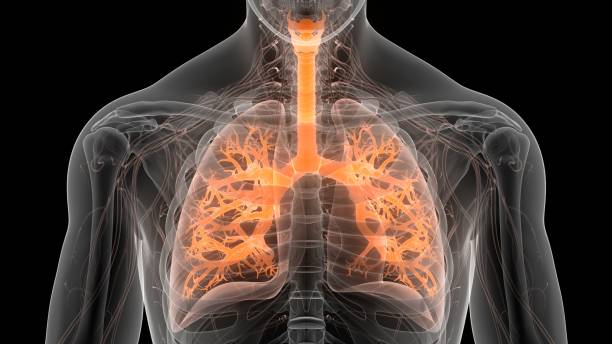Emphysema & Homeopathic Treatment

Emphysema is a chronic lung condition that causes damage to the alveoli (air sacs) in the lungs, leading to shortness of breath and reduced oxygen exchange. It is a key component of Chronic Obstructive Pulmonary Disease (COPD)and is often caused by smoking, pollution, or long-term exposure to lung irritants.
Causes of Emphysema:
• Smoking – The leading cause of emphysema, as it destroys lung tissues.
• Air Pollution & Environmental Irritants – Dust, chemicals, fumes, and pollutants contribute to lung damage.
• Genetic Factors – Deficiency of alpha-1 antitrypsin can make some individuals more prone to emphysema.
• Chronic Lung Infections – Recurrent infections weaken the lungs over time.
Symptoms of Emphysema:
• Shortness of breath (dyspnea), especially during physical activity
• Chronic cough with or without mucus production
• Wheezing and tightness in the chest
• Fatigue and weakness
• Weight loss due to increased effort in breathing
• Barrel-shaped chest due to trapped air in the lungs
Homeopathic Remedies for Emphysema:
Homeopathy offers natural relief for emphysema by addressing lung function, reducing breathlessness, and strengthening the respiratory system.
• Antimonium Tartaricum – For rattling cough with excessive mucus, difficulty in expectoration, and shortness of breath.
• Carbo Vegetabilis – Best for advanced cases with extreme breathlessness, bluish skin (cyanosis), and weakness.
• Arsenicum Album – Helpful when breathing is difficult, worsens at night, and improves by sitting upright.
• Lobelia Inflata – Used for tightness in the chest, suffocating feeling, and wheezing.
• Blatta Orientalis – Effective for chronic cough and difficulty in breathing aggravated by exertion.
• Ipecacuanha – Recommended when there is persistent coughing with nausea and chest congestion.
• Senega – For elderly patients with emphysema, excessive mucus, and difficulty in clearing the throat.
Natural & Lifestyle Remedies:
• Quit smoking immediately – This is the most crucial step to prevent further lung damage.
• Practice breathing exercises – Techniques like pursed-lip breathing and diaphragmatic breathing improve oxygen intake.
• Avoid air pollution – Wear a mask in polluted areas and maintain good indoor air quality.
• Stay physically active – Light exercises like walking help improve lung function.
• Maintain a healthy diet – Eat antioxidant-rich foods (fruits, vegetables) to support lung health.
• Hydration – Drinking plenty of fluids helps in thinning mucus, making it easier to clear the airways.

